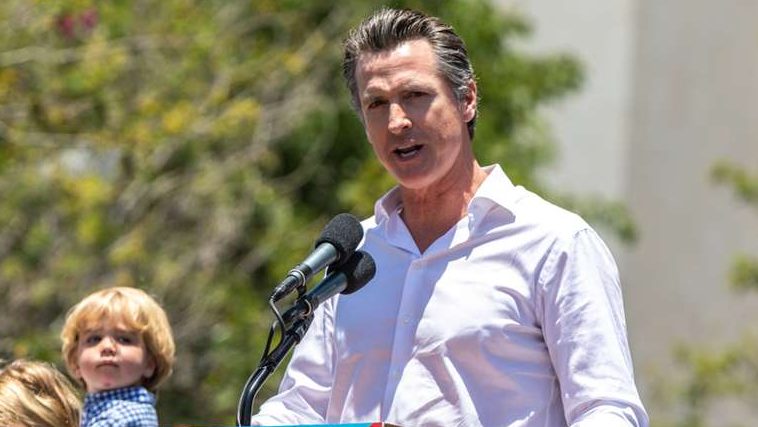The U.S. Department of Justice is challenging the “unequal treatment of faith communities” in California’s coronavirus reopening plan, warning that continued restrictions on worship services threaten believers’ civil rights to practice their religion.
“Simply put, there is no pandemic exception to the U.S. Constitution and its Bill of Rights,” said Assistant Attorney General Eric Dreiband of the department's Civil Rights Division in a three-page letter sent to California Gov. Gavin Newsom May 19.
Under Newsom’s May 4 “road map” for opening the state back up, “in-person religious services” will not be allowed until the third phase of his four-phase plan. The plan lists houses of worship among “higher risk environments,” such as movie theaters and sporting events.
The state is currently in the initial stages of “Phase 2,” meaning that many retail facilities and other businesses are allowed to begin operations with social distancing.
The Justice Department said this “differential treatment” of religious worshipers is an unfair imposition on “constitutionally protected religious worship.”
“The Constitution calls for California to do more to accommodate religious worship, including in Stage 2 of the Reopening Plan,” Dreiband wrote.
The department also questioned why Newsom’s original orders shutting down the state forbid in-person worship services while allowing other retail and service operations to remain open “regardless of whether the product they are selling and shipping are life-preserving products or not.”
“Religious gatherings may not be singled out for unequal treatment compared to other nonreligious gatherings that have the same effect on the government’s public health interest, absent the most compelling reasons,” Dreiband wrote.
DOJ’s letter to CA Gov. Newsom on civil rights and the covid-19 pandemic.
“We believe that the Constitution calls for California to do more to accommodate religious worship, including in Stage 2 of the Reopening Plan.” pic.twitter.com/8A4D95QKxs
— Kerri Kupec DOJ (@KerriKupecDOJ) May 19, 2020
California Catholic Conference (CCC) executive director Andy Rivas told Angelus that Newsom and his staff have been “thoughtful and sympathetic” to the Church’s concerns in conversations about reopening.
“We appreciate the support for religious worship expressed by the Department of Justice in its letter to Governor Newsom," read a May 20 statement from the CCC.
"In these difficult times, it pains many of our parishioners to be cut off from the Sacraments and from their fellow worshippers. At the same time, though, we are also very aware that we have a role to play in slowing the spread of COVID-19 and that our top priority has been, and remains, the safety of parishioners and the most vulnerable among us."
Rivas said he has been talking with the Governor’s staff for several weeks and that talks have been “productive” and are ongoing.
The state's 12 Catholic dioceses are each working on their respective reopening plans, and the CCC said it hoped to "make additional announcements shortly." This week, Los Angeles Archbishop José H. Gomez said he believed Los Angeles is “weeks now, not months,” before churches can begin limited reopenings.
The Justice Department warning comes less than a week after a blue-ribbon panel of Catholic doctors issued their conclusions that churches can reopen as “as safely as other essential services” in society. The U.S. bishops’ conference has sent the doctors’ document to bishops across the country to use as a resource in their reopening plans.
In its letter, the Justice Department said that churches across the country have shown a willingness to find “creative ways” to protect worshipers and “comply with social distancing and sanitation guidelines” during the pandemic.
“Many places of worship are quite content to operate at 15-25% of capacity in a way that allows for social distancing between family groups,” the letter added.
Early in the pandemic, U.S. Attorney William Barr intervened on behalf of churches in a Greenville, Mississippi case where city officials banned outdoor religious services, even though the city permitted outdoor eating establishments to remain open.
In an April 14 statement, Barr called on states and local governments to respect religious freedom in their coronavirus containment efforts, vowing that the Justice Department would defend believers against any plan that “singles out, targets, or discriminates against any house of worship for special restrictions.”

